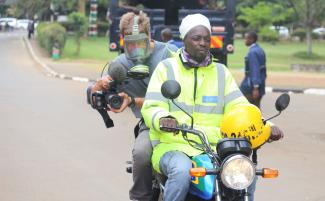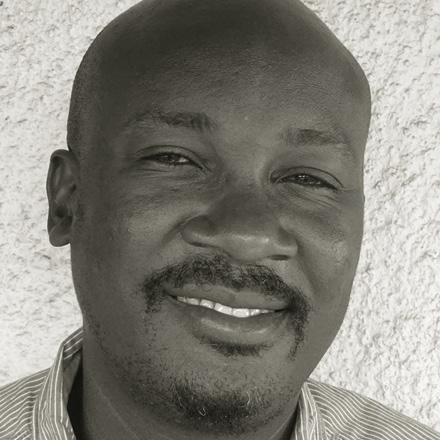Press freedom
Local media and violent strife

Reporting in war zones and crisis regions is especially dangerous. Journalists’ lives are often at risk. Threats and acts of violence are geared not only to intimidating and silencing media workers, but also serve to deny the public independent reporting.
The role of local media in violent conflict was discussed at a recent conference hosted by SEF (Stiftung Entwicklung und Frieden – Development and Peace Foundation) in Berlin (see main story). Since 2010, the number of crises world-wide has tripled – and violence has intensified in individual conflicts.
Media workers have a role to play in conflict areas and peace processes. As Christian Rickerts, a permanent secretary of Berlin’s state government, acknowledges, the truth is among the first victims of any armed conflict, and that only journalists can restore the truth through diligent work. In his eyes, the media must assume responsibility for covering conflicts and dealing with conflict parties diligently.
However, Nicolas Boissez of Fondation Hirondelle, a Swiss agency, points out that many journalists are unaware of what impact their work has on society. Moreover, they are often exposed to traumatising events themselves. Boissez insists that journalists need to be trained in sensitive conflict reporting and that psychological counselling must be available to them. Otherwise, they will not be able to reach out to all conflict parties and promote dialogue among them. The Fondation Hirondelle supports radio stations in crisis areas, including in the Democratic Republic of the Congo for example. The community radios’ mission is to provide independent coverage. The motto is „local media for local people“.
Geraldine Fobang of the Cameroon Community Media Network (CCMN) similarly sees a need for conflict-sensitive reporting. In her country, she says, many people do not trust journalists, and social-media shape the information they get. Many do not even use any other source of information. Fobang says that local journalists must regain trust and give voices to the disempowered.
William Tayeeba teaches journalism at Makere University in Kampala, Uganda. He points out that journalists must be paid appropriately. Many Ugandan radio stations and newspapers depend on support from German faith-based organisations like Bread for the World or Misereor. Should such support be discontinued, journalists would no longer be able to do their work, Tayeeba says. In his eyes, it is a huge challenge to ensure sustained reporting in crisis regions.
Experts agree that local peacebuilding depends on continuous, sustained and crisis-sensitive reporting. All parties to a conflict must be given a public platform. Otherwise the general public cannot form an informed opinion. Responsible journalism can make the difference. (fw)










